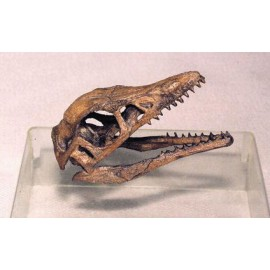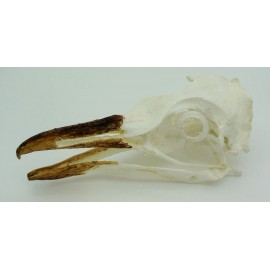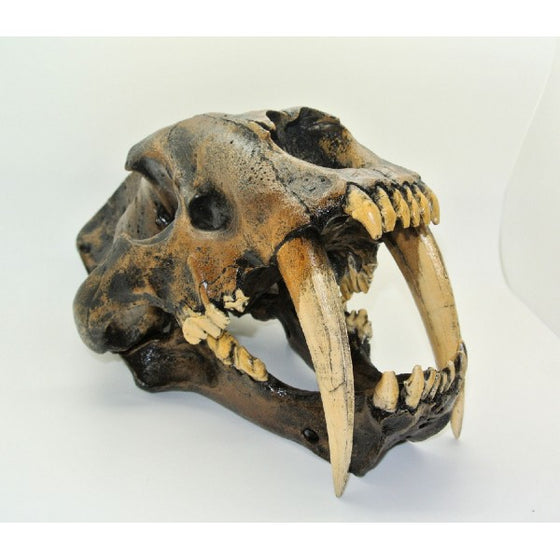Archaeopteryx lithographica.,Archaeopteryx, sometimes referred to by its German name Urvogel ("original bird" or "first bird"), is the earliest and most primitive bird known. The name is from the Ancient Greek meaning "feather" or "wing". Archaeopteryx lived in the late Jurassic Period around 150–145 million years ago, in what is now southern Germany during a time when Europe was an archipelago of islands in a shallow warm tropical sea, much closer to the equator than it is now. Similar in size and shape to a European Magpie, Archaeopteryx could grow to about 0.5 metres (1.6 ft) in length. Despite its small size, broad wings, and inferred ability to fly or glide, Archaeopteryx has more in common with small theropod dinosaurs than it does with modern birds. In particular, it shares the following features with the deinonychosaurs (dromaeosaurs and troodontids): jaws with sharp teeth, three fingers with claws, a long bony tail, hyperextensible second toes ("killing claw"), feathers (which also suggest homeothermy), and various skeletal features. The features above make Archaeopteryx the first clear candidate for a transitional fossil between dinosaurs and birds. The first complete specimen of Archaeopteryx was announced in 1861, only two years after Charles Darwin published On the Origin of Species, and it became a key piece of evidence in the debate over evolution.
*Specifications: CLASS: Aves ORDER: Archaeopterygiformes FAMILY: Archaeopterygidae Origin: Solnhofen, Germany *
Skull Length: 5 cm (2.0 in)






